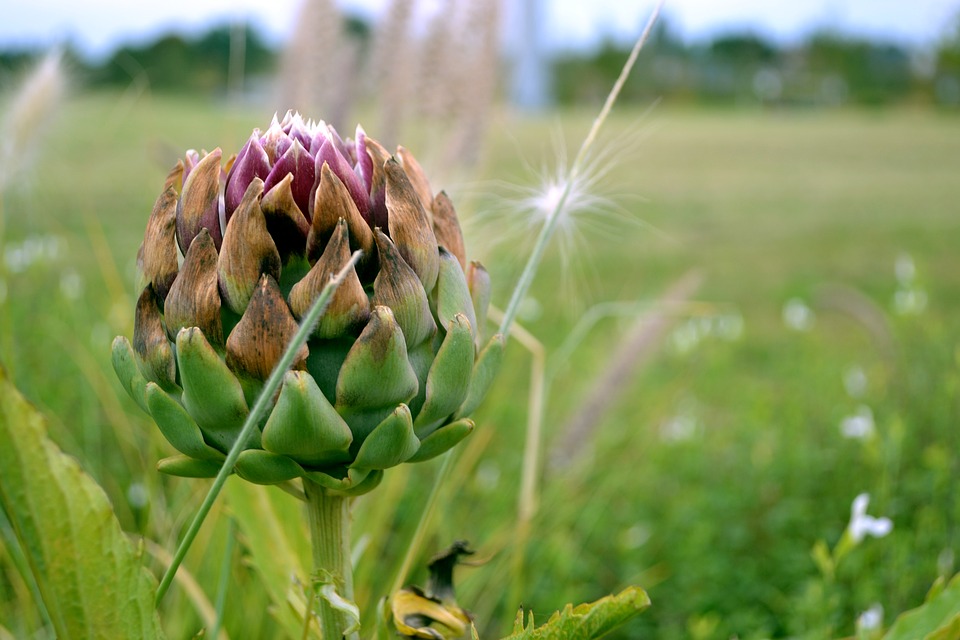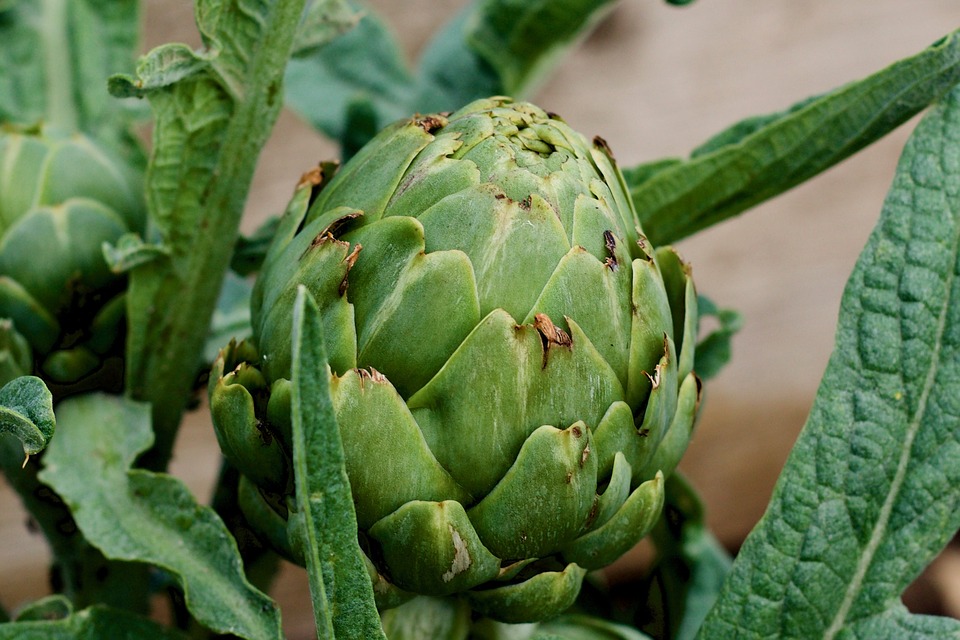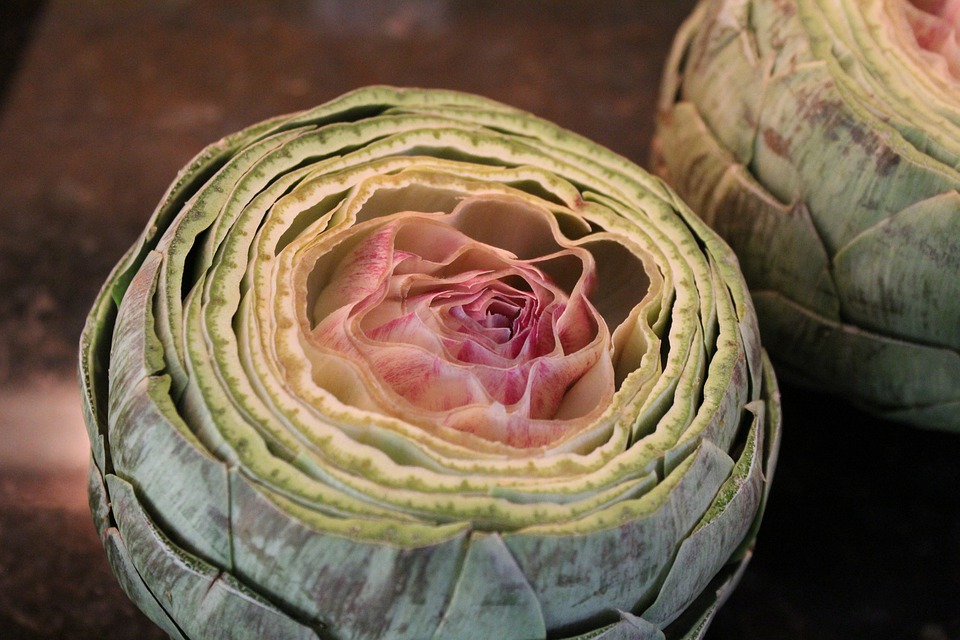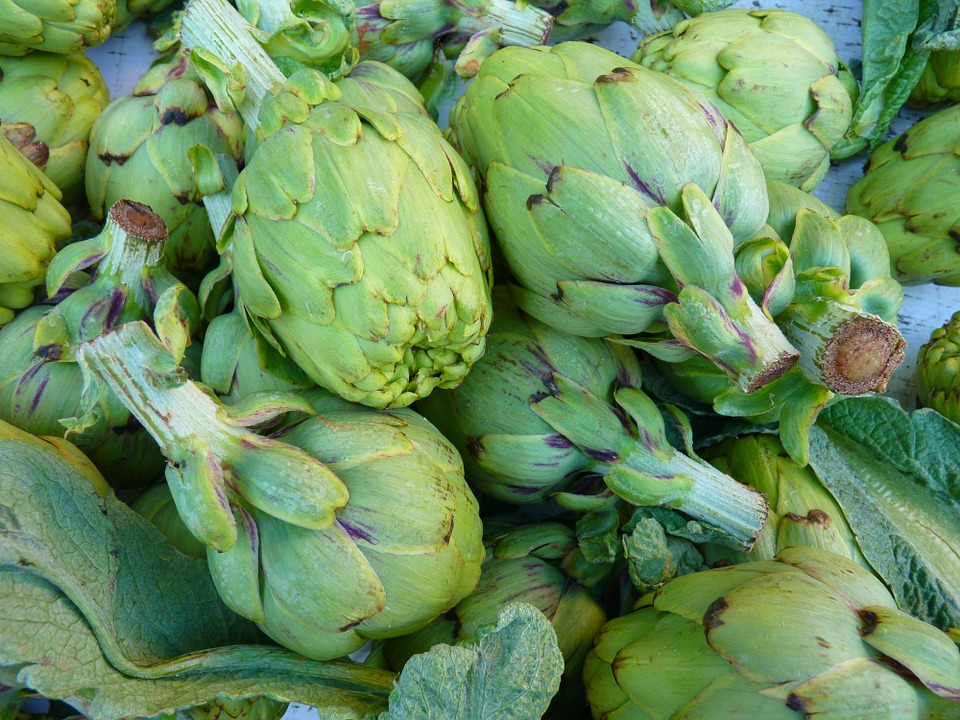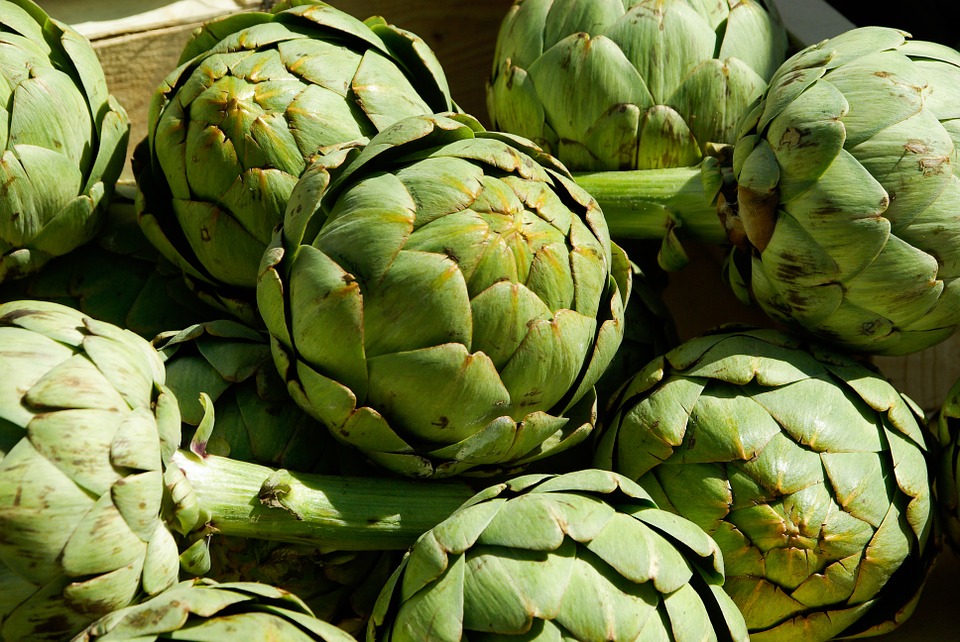Health Benefits of Artichokes
It's at the Heart of Good Health
What are the health benefits of artichokes and where exactly did this "green pineapple" originate? Is it something we would enjoy eating? Put your hands up if you have ever seen or tasted an artichoke? I bet there won't be many hands held high. Though I still don't know quite how to prepare and cook fresh artichokes, they are one of my favourite vegetables. The outer leaves may be tough, but once you get your teeth into the heart of the artichoke, Jiminy Cricket, everything changes. If you've never had one, go out and buy one, they are simply delicious.
Artichokes are the immature flower of the thistle plant and initially discovered in the scorching Nile Valley. Today they are grown in many parts of the world. Artichokes have the healing power to protect you against skin cancer. They can also help prevent heart and liver diseases as well as help prevent congenital disabilities. Artichokes are also an excellent source of fibre.
A chemical compound called silymarin found in artichokes and used as an ointment is known to help prevent skin cancer. Still, you don't have to go around wearing the leaves or the heart of the artichoke to reap the benefits of its skin cancer healing properties. Eating this somewhat intriguing, but inviting vegetable will do just fine. Silymarin works because of its powerful antioxidant properties. Though antioxidants can be human-made, they are also natural substances found in food, most notably in vegetables and fruit that may prevent or delay some types of cell damage, including skin cells.
Antioxidants help prevent cancer in your body by mopping up all those destructive cell-damaging molecules known as free radicals before they have the chance to damage DNA and pave the way for any tumours to develop. While free radicals occur naturally, their formation is primarily accelerated by exposure to such things as too much sunlight and air pollution. You cannot stop free radicals from forming, but artichokes can block their effects.
Silymarin or Milk Thistle extract is such an effective antioxidant that it's even used medicinally against liver disease in some parts of the world. There's no clue as to how many artichokes you'd need to consume to reap these benefits, but what the heck, you can't go wrong by including more of these super healthy and delicious vegetables into your diet.
The Birth of an Artichoke
Health Benefits of Artichokes - Good for the Heart
How many of you realise that the heart of the artichoke is right for your own heart? As we continue thriving on junk food and in particular the convenience of drive-through, fast food outlets, we often come up short on so many significant food alternatives, and in particular the fibre content that only comes from plant food. Even though dietary fibre does not have any nutritional value to speak of, it's of tremendous importance to our well-being. The simple act of adding more fibrous material to the stool will allow the waste product to be excreted from the body quickly and easily. And only plant food can do that. Animal food has no fibre whatsoever, and therefore it will sit in the body a lot longer.
Fibre is essential for sweeping toxins and cholesterol from the intestinal tract before they can cause problems. Also, getting enough fibre in your diet can help prevent high blood pressure, high blood sugar, (a precursor of diabetes) high cholesterol, heart disease and certain types of cancer, particularly colon cancer. Your daily value for fibre is around 25 grams. Artichokes are an excellent source of fibre. Just one cooked artichoke contains more than 6 grams of the rough stuff, providing about a quarter of your daily requirement.
If you don't like the leaves, you can get plenty of fibre from the hearts alone. Fresh, frozen or canned, a half-cup serving of artichoke hearts delivers about 5 grams of fibre, which is 20 per cent of the daily value.
Artichokes are an excellent source of magnesium, a mineral that is extremely helpful in controlling high blood pressure. Magnesium helps keep your muscles running smoothly and also lessens the risk of arrhythmia, which is a potentially dangerous variation in your heart's normal rhythm. Studies have shown that up to 35 per cent of people who have heart failure also have deficient levels of magnesium. One medium artichoke will deliver about 72 milligrams of magnesium, that's 18 per cent and nearly 13 per cent of the daily value.
Artichoke
Health Benefits of Artichokes - Vitamin Content
As with most vegetables and fruit, artichokes are a good source of vitamin C., And just like silymarin, vitamin C is a potent antioxidant, so it squelches free radicals before they can do any damage. Eating lots of vegetables and fruit that contain vitamin C, will significantly help maintain healthy skin and durable immunity against harmful bacteria and viruses. One medium artichoke contains about 12 milligrams of vitamin C, 20 per cent of your daily value.
As a pregnant woman, you'd be especially wise to sink your beautiful teeth into the sweet layers of artichokes, simply because artichokes contain folate, a B vitamin known for its importance in fetal development. And even if you're not pregnant, folate is an essential nutrient, because it helps your nerves function properly. Studies show that folate may well be vital in protecting you against heart disease and certain cancers. Don't think that heart disease is only a man's disease.
Unfortunately, folate deficiency is one of the most common vitamin deficiencies in the western world. We don't get enough okra, (a ladies finger veggie in English-speaking countries) dark green leafy vegetables as well as other folate-rich vegetables such as cauliflower and broccoli. We need to get around 400 micrograms of folate each day. One medium artichoke contains about 60 micrograms of folate, 15 per cent of the daily value. A half-cup of artichoke hearts contains about 40 milligrams, which is about 12 per cent of the daily value.
Artichokes
Health Benefits of Artichokes - Getting the Most
The biggest problem when purchasing fresh artichokes is how to prepare them. I'm still figuring this one out because they seem to be too much effort in their preparation without making a real mess of things. If you're like me, you may prefer to buy a bag of frozen hearts or even better, a tin of artichoke hearts.
Somehow preparing fresh artichokes can be too much of a chore, and if you don't get it right the first time around, you might want to give it up altogether. However, if you do manage to get it right, good for you. On the other hand, frozen artichokes are a snap to prepare, and although they may lose some of the nutrients during processing, they have more folate than their fresh cousins.
As far as vitamin C content is concerned, eat artichokes fresh. The reasoning behind this is that any processing of the plant could quickly destroy its vitamin C content. So when you're trying to get the maximum intake of this crucial vitamin, fresh is the way to go. And while you're at it, go easy on the sauce, unless of course, it's something like a fresh avocado dip.
In their natural state, artichokes are a low-fat food, so you don't want to smother the goodness with butter. You can also maintain the low-fat profile while still adding a bit of zest. Replace the butter with a dip of low-fat yoghurt and season with a little garlic and or lemon juice.
Artichokes are typically served as a separate side dish rather than as the main meal because they require a lot of attention when eating. Besides, even though artichokes themselves aren't sweet, they do like the sweetness of other foods, and you have the means to make it so. The reason for this is that artichokes are high in an antioxidant known as phytonutrients which form a compound called cynarine. It's is a hydroxycinnamic acid and a biologically chemical constituent of artichoke.
When you mix cynarine with other foods, it makes them taste sweeter than they are on their own. Cynarine stimulates the sweetness receptors on your tongue. Even plain water tastes sweeter after you eat an artichoke. You can eat artichokes either alone or accompanied by other foods.
Artichokes
Health Benefits of Artichokes - In your Home
Appearances can be deceptive, but if you follow these few simple pointers, preparing and eating artichokes can be extremely beneficial for you. For your heart, for your skin and so much more.
- Because dirt can easily get lodged beneath their scaly leaves, it's essential to rinse artichokes thoroughly before cooking.
- First pull out the sturdy outer, lower petals. Then, with a sharp knife, slice off the stem so that they're level with the bottom of the artichokes.
- Stand the artichokes in a large saucepan. Cover them halfway with water and simmer for 30 to 40 minutes. Or place them on a steaming rack and steam for the same amount of time.
- To check if they are done, pull on a centre petal. If it comes out quickly, the artichoke is complete.
- To eat the leaves, hold them by the curved tip side down, and draw them between your teeth to remove the tender flesh.
- When the leaves are all done, use a fork or spoon to scoop out the hairy layers, called the choke. Discard the fuzzy choke and then tuck into the best part, which is the tender heart.
As much as this sounds easier said than done, It might require a few blunders before you perfect the art of preparation and cooking. You can avoid all this work by purchasing just the artichoke hearts on their own. After all, it's the heart of the matter that makes artichokes that much more beneficial for your health as well as being a tasty vegetable you'll enjoy.
Artichokes
Love Travel Eat Right - Disclaimer
Please take note that the information on this site is designed for educational purposes and is intended solely for a general readership. The contents herein are not intended to offer any personal medical advice or to diagnose any health issues you may have. This information is also by no means a substitute for medical care by a licensed healthcare provider. For that, you'd need to consult your medical doctor or a health care practitioner for any advice should you require prescription medication.
